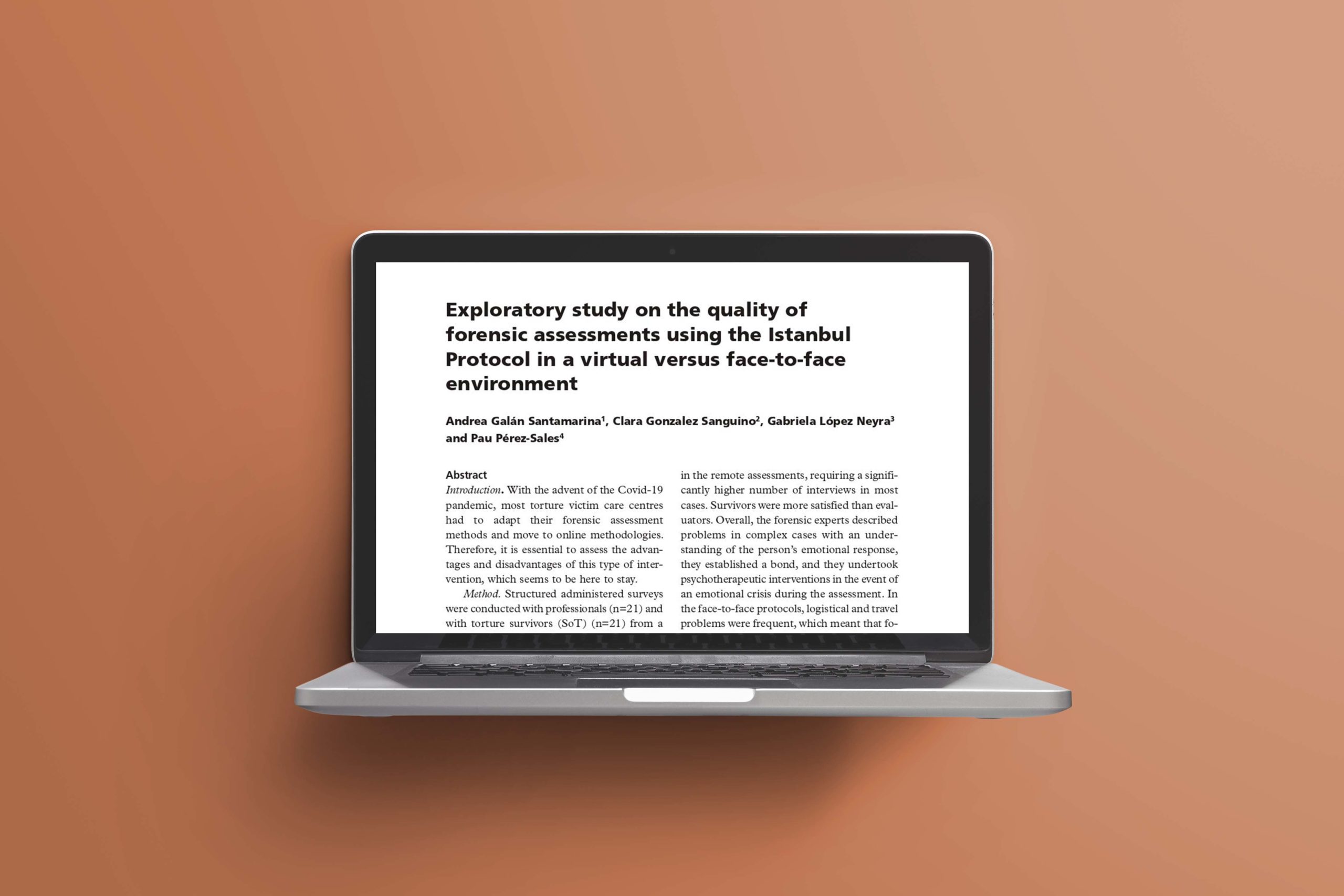Resumen
Introduction. With the advent of the Covid-19 pandemic, most torture victim care centres had to adapt their forensic assessment methods and move to online methodologies. It is essential to assess the advantages and disadvantages of this type of intervention, which seems to be here to stay.
Method. Based on a sample of 21 Istanbul Protocols (IPs) conducted with survivors of torture (SoT) applying for international protection between 2020 and 2021, both professionals (n=21) and SoT (n=21) were interviewed comparing face-to-face (n=10) and remote (n=11) interviews concerning the assessment process, satisfaction, difficulties encountered and fulfilment of therapeutic aspects.
Results. No substantial problems were found about the ethical requirements of the IP. Satisfaction with the process was also positive in both modalities. Regarding the process, there were frequent connection problems and a lack of adequate material resources in the remote assessments, requiring a significantly higher number of sessions by IP. Survivors were more satisfied than therapists. Overall, the forensic experts described problems in complex cases with understanding the person’s emotional response and establishing a bond and undertaking psychotherapeutic interventions in the event of an emotional crisis during the assessment. In the face-to-face protocols, logistical and travel problems were frequent, which meant that forensic work times had to be adapted.
Discussion. The two methodologies are not directly comparable but have specific issues to be studied and addressed. More investment and adaptation is needed in the remote methodology, especially given the financial vulnerability of many survivors. Remote assessment could be an alternative to face-to-face interviews in specific cases. However, there are very relevant human and therapeutic aspects that indicate that, whenever possible, face-to-face assessment should be preferred.

